Recorded way back in the early part of the year, we finally get to share this conversation with Catherine Cronin, independent open education, scholar, researcher, and all around champion of openness. We start with a bit of location setting for Catherine’s home near Galway Ireland, with a description of the picturesque Flaggy Shore where she often walks.
Our conversation walks along with Catherine from her upbringing and influences growing up in New York City, to multiple academic degrees (Engineering, Women’s Studies, and Open Education), experiences of teaching and research, her leadership with Ireland’s National Forum for the Enhancement of Teaching and Learning, a GO-GN Fellowship, projects in introducing open practices to community groups, plus the upcoming publication of Higher Education for Good co-authored with Laura Czerniewicz.
Walk along and listen in our conversation with Catherine, where we are joined as well by OEGlobal’s Una Daly (these two had a bit of a Bronx/Galway connection you will hear about).

Podcast: Play in new window | Download
References and Quotes for Episode 54
I’m quite near the coast, so if you go out to this area called the Flaggy Shore– actually the name comes from these big natural flagstones from the Ice Age when the ice scraped across and created these huge flat flagstones.
So everyone calls it the Flaggy Shore. And when you walk along the Flaggy Shore, you’re right on Galway Bay. To the north you have Galway, beautiful Galway and the mountains of Connemara. And to the south you have Clare and The Burren. So it’s just beautiful and wild. Seamus Heaney wrote one of his most well-known poems, “Postscript” about a walk along the Flaggy Shore.
Catherine Cronin on the Flaggy Shore
- Kinvara, County Galway (Wikipedia)
- Galway (Wikipedia)
- Catherine’s photos of the Flaggy Shore (Flickr Album)
- “Postscript” (poem by Seamus Heaney)
I was teaching with the Open University when they brought in the CoSy system, which was the first kind of text communication system between students and teachers. And that was in about the mid 1990s. So I progressed along that kind of online digital education in the early days.
And then when I realized that I didn’t come to find my way to OER but I found my way to open tools where other educators who were teaching online, were sharing their stories and ideas with each other. I got it then, and from there I just followed the threads, connected with people and found my way to Open from that.
Once I found Open Education, it clicked with so many things that I had done in my life, community education, Women’s Studies. I had done a master’s degree in women’s studies. Because again, others have noted as well that a lot of the roots of open pedagogy are in feminist pedagogy.
Catherine Cronin on her work in Open Education with the National Forum
[Developing open capabilities] ended up being really generative concept and kind of pillar around which to organize the work. It draws on the capabilities approach, from the area of human development, which is about what a human is able to do and to be. And the key I think for me around capabilities is that you don’t look at just a person’s abilities, but you look at a person’s abilities within a bigger context, the kind of social, political, economic educational context. For the National Forum to state as its overall aim to build and develop open capabilities, recognize that people, students and staff and everyone are coming into the higher education sector with a whole range of different backgrounds and sets of skills and levels of confidence .
They’re in different kinds of institutions, but we really want to be sure to help each person to develop. So yes we need to talk about policy and strategy and structures and so on, but if the focus is helping each person to develop their capabilities, then I think that we’re winning.
And that’s winning in the sense of what many of us talk about when we talk about critical and social justice approaches to Open. To be able to do that, within the auspices of a national organization was really exciting. And a lot of people really, in different institutions got on board with that and are continuing that work.
Catherine Cronin on collaboration and the capabilities approach
- CoSy computer conferencing system (Wikipedia)
- University of Galway
- National Forum for the Enhancement of Teaching and Learning in Higher Education
- Capability Approach (Wikipedia)
- Feminist Perspectives on Learning, Media, and Educational Technology (Learning, Media, and Technology)
- Seven Principles of Data Feminism (Internet Just Society)
[I found that in community organizations] there generally isn’t an awareness about open licensing and open education at the community level and also, the work that’s happening there is so essential and so fundamental, it’s completely connected to what the community needs. By definition, they’re community organizations.
….
And little support. So I sought to engage with community organizations around what I called “Just Knowledge”, but it was around the concept of open knowledge. So I just went in and asked, “What are you sharing, with your community? How are you sharing it? What challenges do you have doing that?” And particularly in a post- can we say post pandemic? Particularly in a COVID environment. A whole lot of things had started to be done online that had never been done online in community groups because of COVID so it was ripe for having those kinds of discussions.
Catherine Cronin on Just Knowledge GO-GN Fellowship project and community organization work
- Just Knowledge (GO-GN project)
- Just Knowledge research partner: Galway Traveller Movement & community mapping project (GO-GN)
- Irish Traveller Movement https://itmtrav.ie/ (Community Organization)
- Galway Traveller Movement http://gtmtrav.ie/
- Just Knowledge research partner: Green Sod Ireland & Biodiversity (GO-GN)
- Green Sod Ireland (Community Organization)
- Swift Conversation Ireland (Community Organization)
- Community Knowledge Initiative at the University in Galway
- Just Knowledge: a community-focused open knowledge project (OER22 presentation, YouTube)
The concept of Higher Education for Good was there right at the very beginning, and we know that we’re facing multiple and intersecting crises globally and in higher education.
COVID climate, austerity, inequality, surveillance, et cetera. We wanted to send out a global invitation to invite people to speak to the current crises but also find some hope. So look to the future and paint possible hopeful futures. If possible, because we think like in looking at other areas in the work in the area of climate, for example, some of, I think the most powerful work is work that does that, doesn’t just diagnose the issue, but points to ways that we can move forward, more positively and more hopefully.
…
At this stage we have 27 chapters, 70 authors, 17 countries, I believe. We had an amazing review process that included global reviewers. Many of those reviews were open. Throughout the course of this year, we’ve been editing, revising and what’s really exciting is that we don’t just have academic chapters.
We invited people to write in whatever genre they chose. So there are chapters written in the form of a dialogue. There’s poetry, one in the form of haiku. There are theoretical pieces. There’s an audio podcast. We also invited artists to contribute artwork.
Catherine Cronin on Higher Education for Good
- Higher Education for Good: Teaching and Learning Futures
- Call to action to address the impact of COVID-19 on education in emergencies (UNESCO)
- Indigenous Open Educational Resources: Respectfully Uplifting Community Voices (BCcampus)
- Response to Call for Proposals for ‘Higher Education for Good’ (Catherine Cronin blog)
- Recentering Open: Critical and global perspectives (OER19 Conference, National University of Ireland, Galway)
- Dr. Angela Davis Speaks on art and its role in social change (Blurred Culture)
- Open Book Publishers
- Begin Again by Eddie Glaude
- Higher Education for Good: Criticality, resistance and hope (presentation slides, – OER23, Inverness, Scotland, 6 April 2023 )
Our open licensed music for this episode is a track called Soul Walking by Juanitos licensed under a Creative Commons Attribution-Share Alike License. Like most of our intro music, it is from the Free Music Archive (see our full FMA playlist).
The photo background for this episode’s featured image is Sunset, Flaggy Shore flickr photo by catherinecronin shared under a Creative Commons (BY-SA) license
The introduction was created with the OEG Voices Mixer featuring voices of Catherine C, Lena P, Igor L, Lisa Y, Kevin H, Cynthia O, Jonathan P, Clint L, Vera K, Wayne M, and Robert S — Catherine contributed her voices in time for this episode (learn how to add your voice to the mix).
This was another episode we used Descript for transcribing and editing audio that has greatly enhanced our ability to edit and transcribe our show.
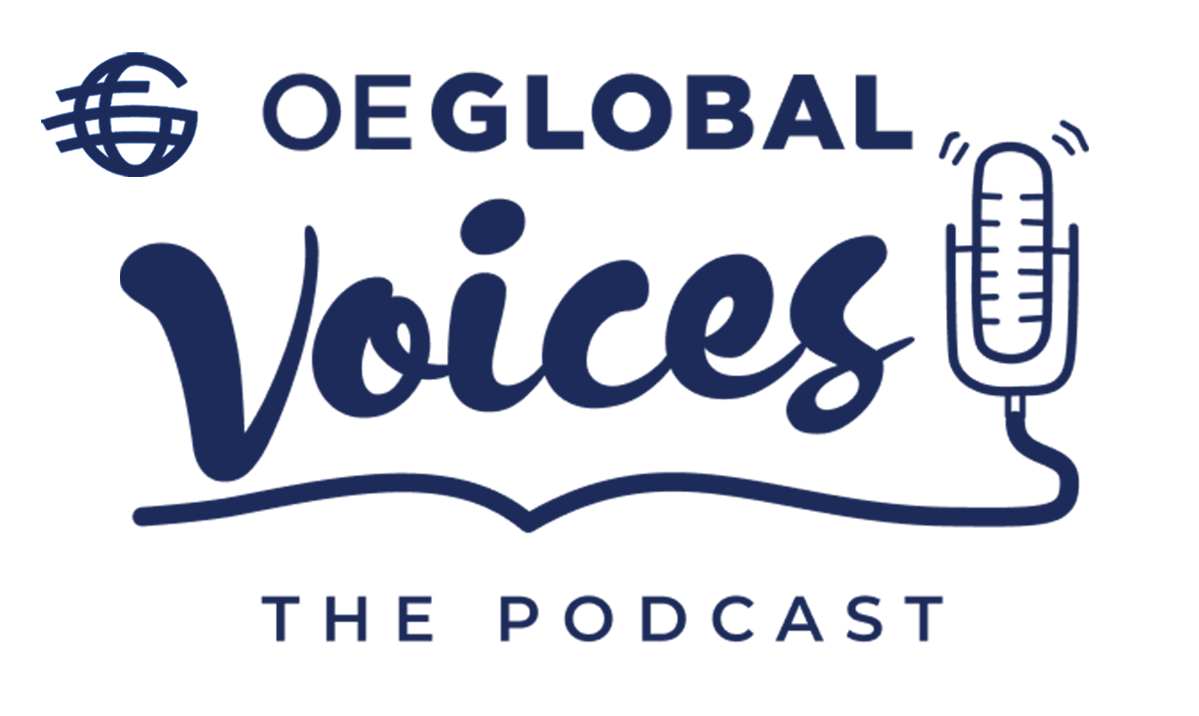
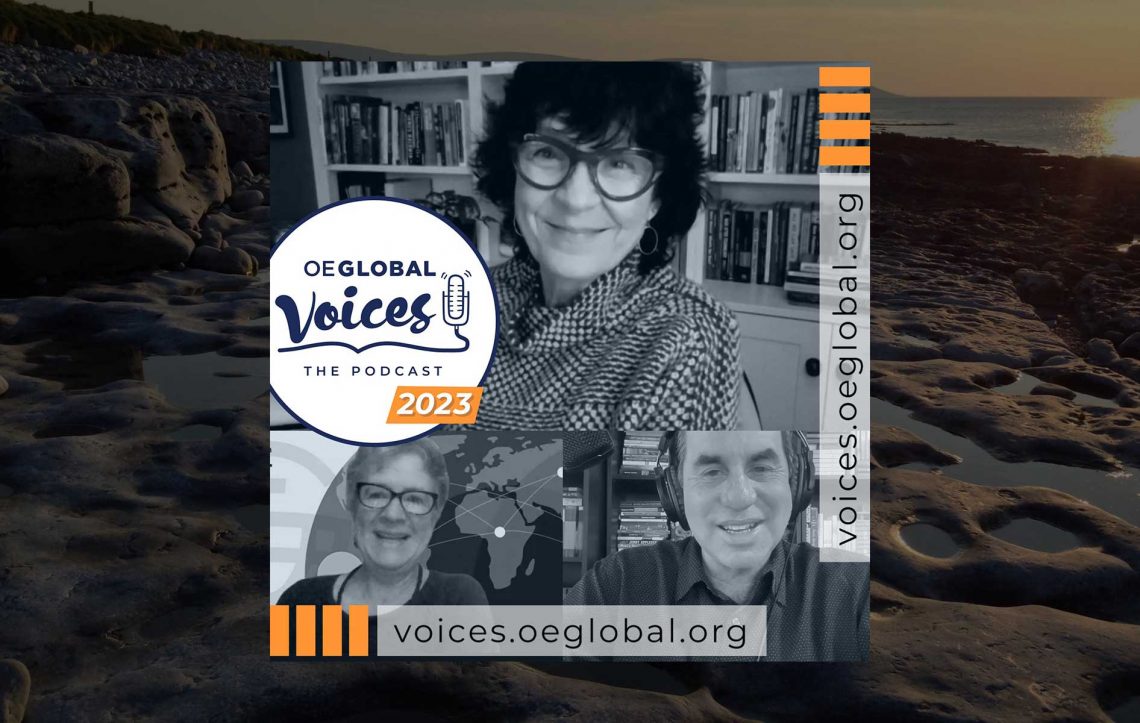

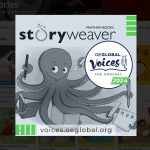
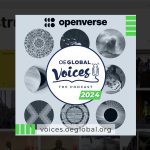



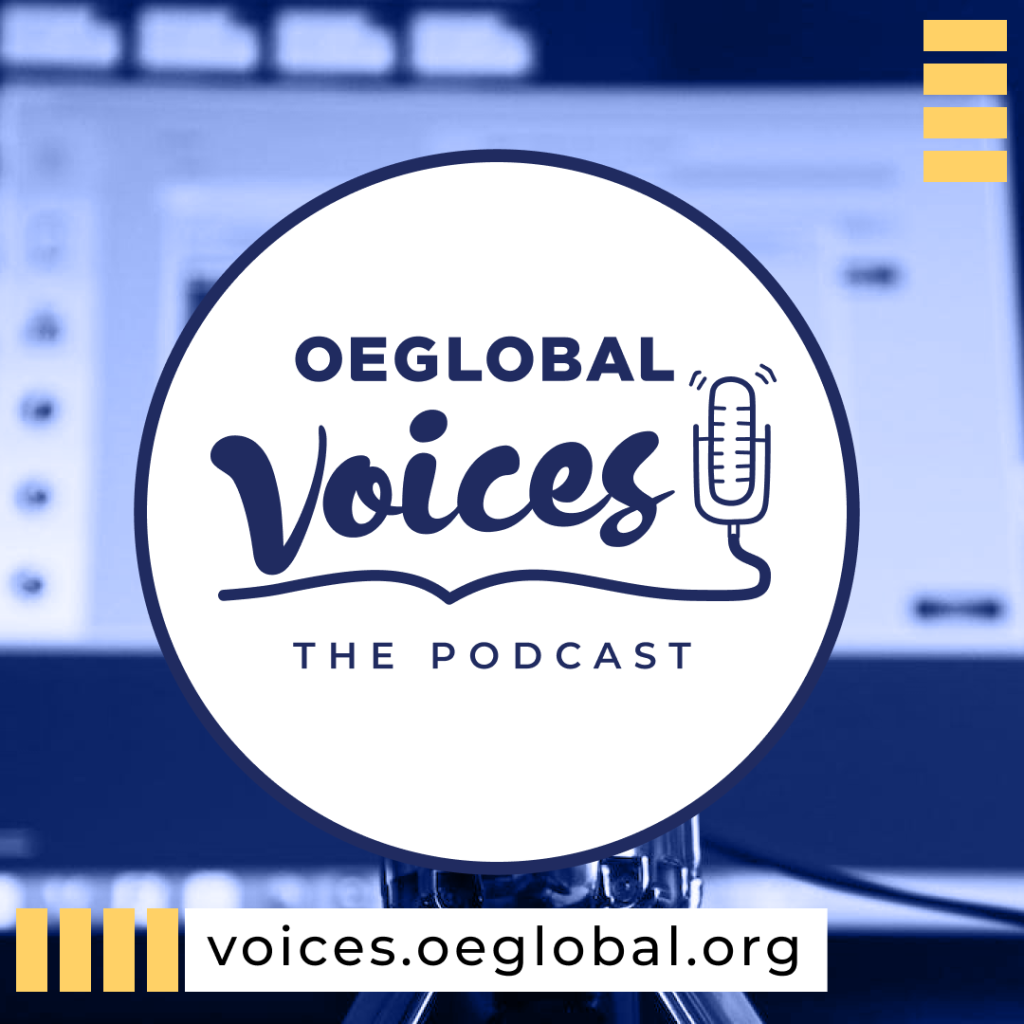

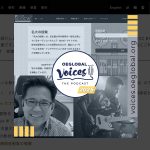
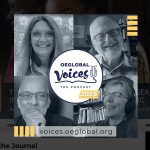
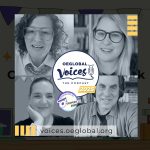
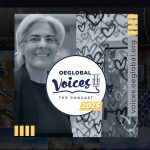
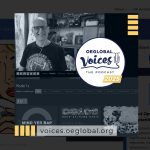
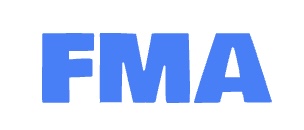
I hope many in the open education community get to hear our podcast conversation with @catherinecronin and then use this space to respond with thoughts, questions, and your experiences gained from all that Catherine has shared in her career.
There was a quote I missed adding to the post that I said I would during the conversation! I had asked Catherine about her early education experience, what kind fo student she was, and also, who were her memorable teachers.
That expression of teachers is so resonant-- those who give you horizons beyond where you needed you to stretch, beyond where you thought you could go.
And I also remember long ago being so influenced of Catherine’s framing of “bounded online spaces” as a 3rd space, braking the dichotomy of virtual vs in person.
Catherine just blogged about her Higher Education for Good presentation at OER23
Just spotted from Catherine’s co-author Laura Czerniewicz has shared a post outlining ideas she and Catherine developed from their Higher Education for Good book, “five tenets towards a Manifesto for Higher Education for Good”
These are:
Read Laura’s post for more about these tenets
I loved having this conversation with you and Una, Alan! thanks for the chance to chat – and thanks for all you do